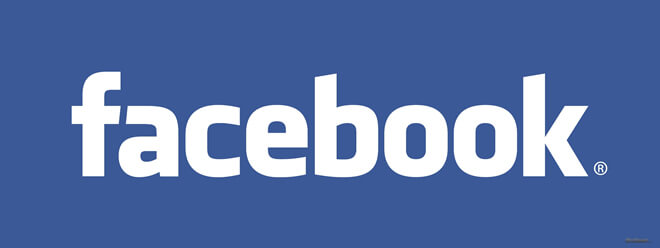Facebook and Privacy: A Strain too Great?
Our personal identifying information is something that many of us try our best to protect. It’s a common worry that an employer may “Google” a prospective employee and see what is out there about them, making sure that they are a good fit for the company. As the battle for online privacy wages, some companies are making more headlines than others for their approach. For better or for worse, as is often the case these days in relation to any Internet trend, Facebook comes up at the top of the list.
The private goes public
It’s actually more accurate to say that Facebook is becoming the epitome of just about every internet privacy complaint ever lodged. Their bad reputation began in 2007, when their underlying code was leaked onto the Internet. This was a gold mine for hackers, showing them all of the backdoors they needed to extract all sorts of personal information quickly and quietly.
Once this issue was fixed, in November of the same year, a project called “Beacon” allowed 3rd party websites to embed a small script onto their pages that would automatically send all sorts of user information and statistics to Facebook. Facebook was now places that Facebook users didn’t even know about, creating a very creepy feeling. Astoundingly, this program was allowed to continue for almost two years.
Identity games
Facebook makes it amazingly simple for users to make accounts that are in the likeness of someone else, enabling all sorts of easy defamation. While this has always been a concern online, Facebook’s construct makes this very easy to do, and very difficult to combat.
RELATED: Perfect Marketing: Why You Have to Think Like a Customer
In one case, a man who goes by the online handle of “Lefty” has documented the lengths that someone decided to go through to impersonate him. The way that Facebook’s privacy settings work makes people like his stalker extremely difficult to stop, as someone with a new account can block you the moment they create it, making it impossible for you to know they exist unless someone tells you. “Lefty” went so far as to drive to Facebook’s headquarters to get answers. Facebook’s response amounted to little more than a shrug.
A worrisome alliance
That Facebook would use, sell, and allow compromising of a user’s personal information is all bad enough. Worse was that it wasn’t only to other companies that they’ve proved willing to make these deals. Facebook showed that it was just as willing to bow down to governmental requests as it was to other businesses.
Buckling under pressure is one thing. Webmasters who face legal action have to confront this question all the time. Facebook, though, has shown almost a gleefullness in willing to fork over to just about whatever government agencies just about whatever information they want. They’ve stated that, all that they require of the requesting agency is a “good faith belief” that they will use the information obtained in nothing more than an honest pursuit of evildoers. Those of us a bit jaded these days at the notion of any government agency earning such “good faith” would rightly get a chill at this naiveté.
It gets worse. Facebook announced in mid-2011 the launch of its own PAC (political action committee) that would allow its corporate employees to donate money to their favored political candidates. This is not an unheard of strategy for large software developers or for large web companies; Google and Microsoft both have PAC. But combine this with the above kowtowking, and then add into that the assertions that Facebook as a whole leans to one side of the political aisle, and you have the recipe for one gargantuan mess of corruption that would make Richard Nixon proud.
RELATED: The Newest Member of the Cloud Security Alliance
Anti-social Extremes
One more area in which Facebook creates problems for the user concerned with privacy is in their sudden, unpredictable update of entire systems of software. Now, software updates by themselves are normal. Facebook, though, takes it to new anti-social extremes, with wholesale layout and information access makeovers with no forewarning. It’s starting to become commonplace to wake up one day and find your feed looking utterly different than it did before.
On a simple usability scale, this is irritating. On a privacy level, this is nightmarish. Users never seem to have any notion anymore of what information is private and what is public. By all measures, there seems to be more help shared between users than there is between those users and Facebook. It’s an unbelievable bit of callousness, one that has resulted in an amazing phenomenon: there are half a billion Facebook users, and most of them are conscious of the fact that this is a relationship based on mutual disrespect.
Looking forward
Privacy giant EPIC (Electronic Privacy Information Center) has begun to lead the charge to the Federal Communications Commission to look into Facebook and their privacy statement as well as their practices. Pardon the obvious pun, but at this point it’s hard to not look at Facebook’s approach to its own user base as, literally, an EPIC failure.
RELATED: Web Site Or Facebook? Depends On Your Needs!
What does this mean for their future? Right now Google+ is starting to siphon off their user base, and it’s likely that both they and other networks will endeavor to do the same. On the other side, Facebook has not yet shown anything beyond the barest of lip service that they have any intention of changing course on any of these approaches.
At the same time, Facebook is still the largest social networking web site in existence, and that momentum means something. Look at, for example, the Occupy movements, or for that matter, any of the major political movements that have sprung up in the last 3 years. It’s a hard sell to try to tell these people to move to a complete different service when they know full well that all of the people that they want to reach are on this one, and time is of the essence. Many of them would like to do so, but have to consider pragmatics as well as values and privacy concerns.
This is a hard one to predict. Unless Facebook changes course, what will most likely determine its future is how well sites like Google+ and other competitors make it easy to jump ship. If they do, all of the things that Facebook is doing to ignore privacy and other concerns just might soon come back to bite them. Bigger empires have fallen before.
** **
** **




